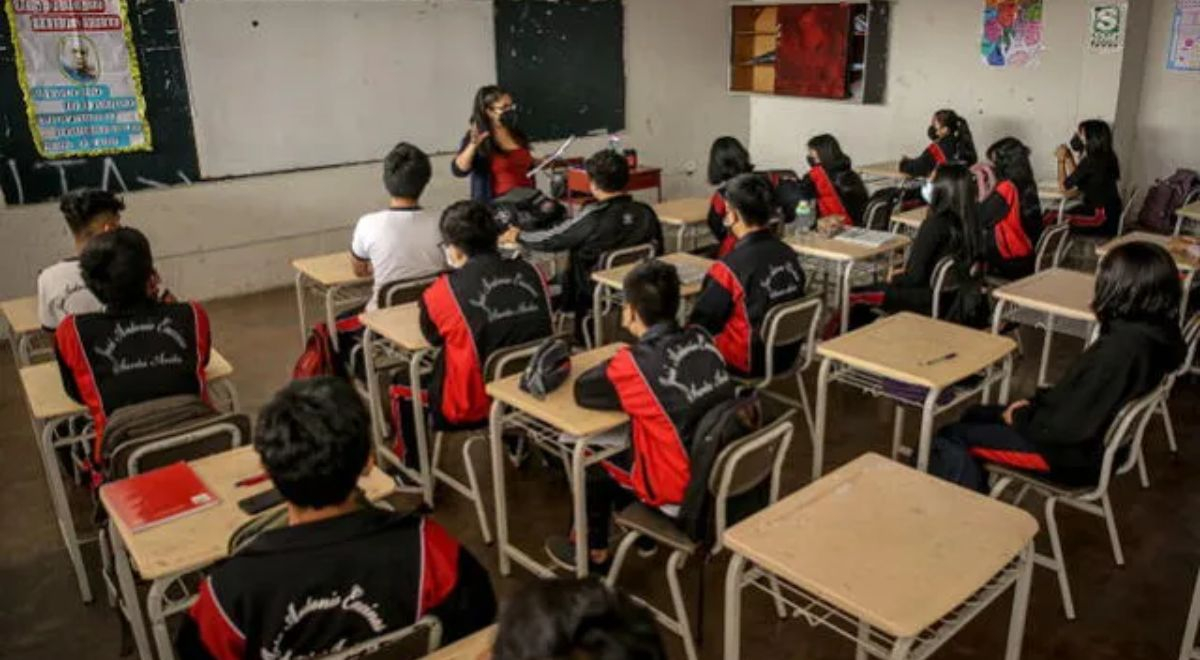
Peru made limited progress in terms of financial education, according to the PISA tests carried out in 2022 by the Organization for Economic Cooperation and Development (OECD): from 411 we went to 421 points; 10 points more than in the 2018 PISA test and 18 more than in 2015.
However, around 42% of schoolchildren do not achieve the basic level of financial literacy competence (Level 2), while in OECD countries the rate is 18% on average. What does it mean to not be at Level 2? That the majority of students cannot identify common financial products and terms, nor the difference between needs and wants, or make simple decisions regarding everyday expenses.
Only 1% of students are performing at Level 5 (11% on average in OECD economies): this small group can analyse complex products, solve non-routine financial problems and have a broad understanding of the financial spectrum. The OECD reveals that the majority of Peruvian students would not be able to identify a scam via email, for example.
There is so much to do
Patricia Escobar, director of the Secondary Education program at PUCP, explains that the results of the PISA test, despite reflecting a reality from two years ago, highlight the need to improve financial education, especially in a country as informal as ours.
We are only ahead of Costa Rica, Brazil, Saudi Arabia and Malaysia in a ranking of 20 economies. Compared to OECD countries, we are very far behind – Peru is already seeking to join this bloc despite not meeting the requirements for socioeconomic progress or regulations.
“A good education not only contributes to a good economy. It is key to the challenges of the present and future, as people must be better informed and have the skills to discern in financial matters,” commented for The Republic.
But in a country where ministerial turnover is high, it is difficult to achieve progress, he adds. It is worth noting that since Pedro Castillo came to power – beyond the ideological divorce from his successor, Dina Boluarte – there have been 8 ministers of education.
Escobar recalls that there is a law that declares financial, tax, economic and consumer rights education to be of national interest in order to strengthen capital, but the Minedu sleeps on its intention and does not make the content viable.
Skills learned by Peruvian schoolchildren
63% of Peruvian students talk to their parents at least once a month about their own spending decisions. In OECD countries, the ratio is 76%. Meanwhile, 64% acknowledge that they can independently decide how to spend their money.
Furthermore, 77% have at some point performed tasks that involve handling and using money, although in practice only 14% have a payment or debit card. In OECD countries, this is 62% of schoolchildren.
“There is a lack of training for teachers, especially in rural schools, to improve. There is also no support from parents despite the skills to manage virtual platforms,” Escobar noted.
Source: Larepublica
Alia is a professional author and journalist, working at 247 news agency. She writes on various topics from economy news to general interest pieces, providing readers with relevant and informative content. With years of experience, she brings a unique perspective and in-depth analysis to her work.











